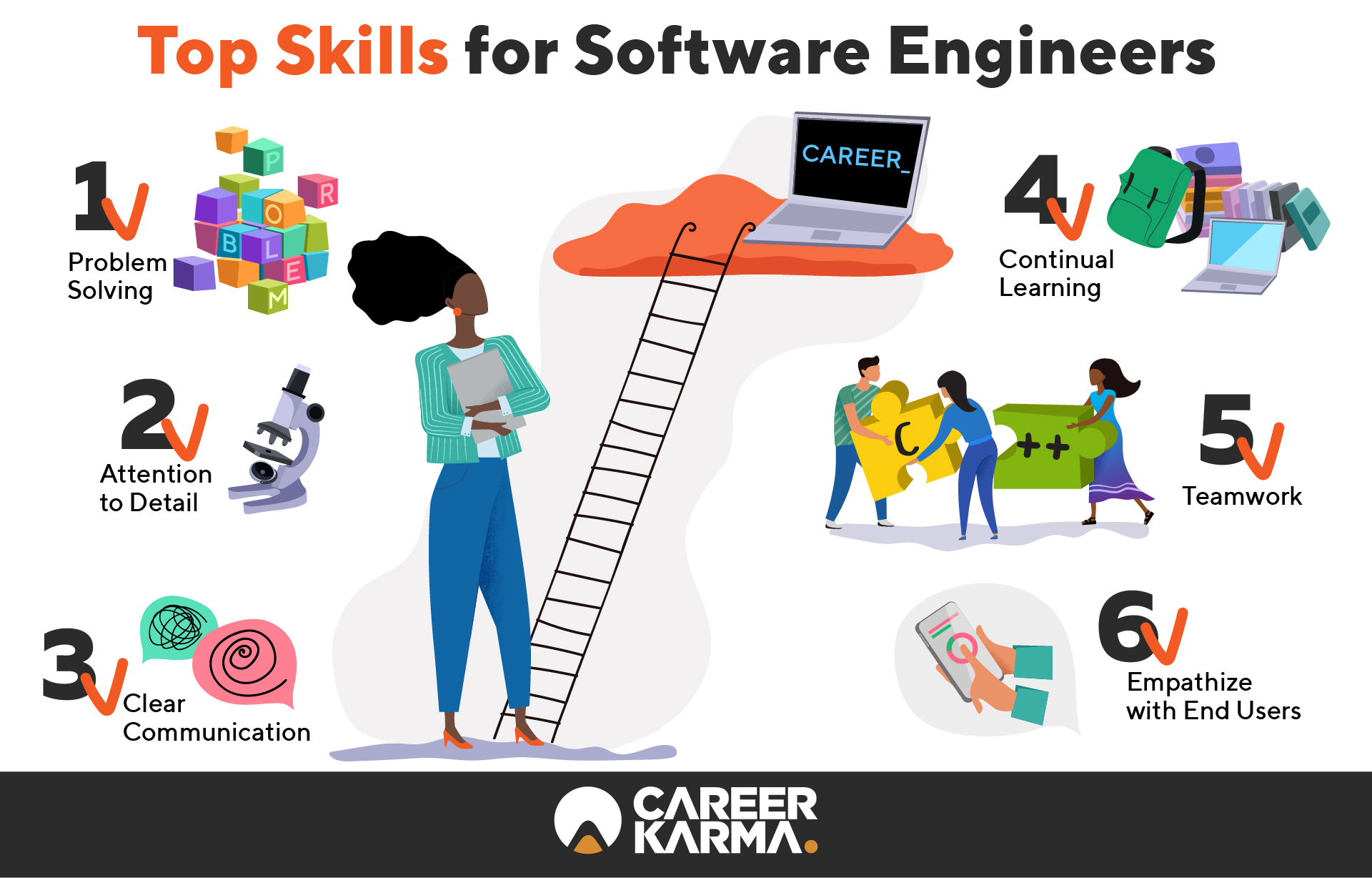Entry level software engineer is where many aspiring tech professionals begin their exciting journey into the world of programming and development. This role is a launchpad, offering fresh graduates and self-taught coders a hands-on opportunity to apply their technical knowledge, collaborate within dynamic teams, and contribute to impactful projects right from the start. It’s a unique position that blends learning with responsibility, making every day both challenging and rewarding.
In this guide, you’ll discover a comprehensive overview of what it means to be an entry level software engineer, including the skills and qualifications needed, typical daily responsibilities, and the work environment. We’ll also explore career advancement opportunities, common interview processes, real-world project examples, compensation insights, and the personal qualities that help you thrive in your first software engineering job. Whether you’re planning your educational pathway or preparing for your first interview, this resource is your roadmap to launching a successful career in tech.
Overview of the Entry Level Software Engineer Role
Starting out as an entry level software engineer is an exciting career move that opens doors to a rapidly evolving tech landscape. This role serves as the foundation for building solid technical expertise while contributing meaningfully to software projects.
Entry level software engineers are primarily responsible for writing, testing, and maintaining code under the guidance of more experienced team members. In addition to technical tasks, they are expected to collaborate with others, participate in code reviews, and continuously learn new skills relevant to their projects.
Primary Responsibilities and Key Skills
The daily responsibilities of an entry level software engineer revolve around code development, bug fixing, and effective teamwork. Technical skills such as proficiency in at least one programming language and familiarity with development tools are essential. Equally vital are soft skills like communication, problem-solving, and adaptability, which support collaboration and development efficiency.
Role Within the Software Development Team, Entry level software engineer
Within a software development team, entry level engineers often work closely with senior developers, quality assurance specialists, and product managers. Their contributions ensure that new features are developed efficiently and work as intended, while also providing valuable learning opportunities from peer feedback.
| Key Duties | Required Technical Skills | Soft Skills | Common Daily Tasks |
|---|---|---|---|
| Writing and debugging code | Basic programming (Python, Java, etc.) | Communication | Implementing new features |
| Participating in code reviews | Version control (Git) | Teamwork | Fixing bugs |
| Testing and validating software | Understanding of algorithms | Adaptability | Attending standups |
| Documentation and reporting | Basic database usage | Problem-solving | Writing documentation |
Educational Pathways and Qualifications
Pursuing a career as an entry level software engineer typically starts with formal education in computer science or a related discipline. However, the tech industry also values practical skills and demonstrable proficiency, which can be attained via alternative routes.
Common Educational Backgrounds
Many entry level engineers hold a bachelor’s degree in computer science, software engineering, or information technology. These programs provide a strong foundation in programming, data structures, algorithms, and systems design. Some employers also consider degrees in mathematics, physics, or electrical engineering.
Alternative Pathways to a Software Engineering Career
As the demand for software engineers grows, alternative learning pathways have gained recognition. Coding bootcamps, online courses, and self-taught study can equip aspiring engineers with practical skills, often focusing on hands-on projects and industry-relevant tools. Many successful engineers have transitioned into the field without a formal degree, leveraging portfolios and certifications.
- Computer Science Bachelor’s or Master’s Degree
- Information Technology or Software Engineering Degree
- Coding Bootcamp Programs (12-24 weeks intensive training)
- Self-taught learning via MOOCs (Coursera, edX, Udemy)
Certifications and Courses Enhancing Employability
Relevant certifications showcase both foundational knowledge and a commitment to professional growth. These credentials can distinguish candidates in competitive job markets.
- Certified Entry-Level Python Programmer (PCEP)
- Microsoft Technology Associate (MTA): Software Development Fundamentals
- AWS Certified Cloud Practitioner
- Google IT Support Professional Certificate
- Coursera/edX Specializations (e.g., Algorithms, Web Development)
Continuous learning is essential in software engineering, as new tools and frameworks emerge rapidly. Staying updated not only improves job prospects but also ensures long-term success in the field.
Common Technical Skills and Tools
Entry level software engineers are expected to have a working knowledge of core programming languages, version control systems, and development tools. Mastery of these technologies prepares engineers to collaborate effectively within diverse teams and contribute to production-level software.
Frequently Used Programming Languages
The most in-demand programming languages for entry level positions are chosen for their versatility and industry relevance. Python, Java, JavaScript, and C# are commonly used, with each serving specific application domains such as web, backend, or mobile development.
Importance of Version Control Systems
Proficiency with version control, particularly Git, is considered essential. These tools enable engineers to track changes, collaborate with teammates, and contribute to large codebases without causing conflicts or data loss. GitHub and GitLab are popular platforms that host repositories and facilitate teamwork.
| Framework | Library | Development Environment | Use Case |
|---|---|---|---|
| React | NumPy | Visual Studio Code | Web & Frontend Development |
| Spring Boot | jQuery | IntelliJ IDEA | Enterprise Applications |
| Django | Pandas | PyCharm | Data-driven Web Apps |
| Node.js | Express | Atom | Backend APIs |
Familiarity with Debugging and Testing Tools
Knowing how to leverage debugging and testing tools accelerates the development cycle and improves code quality. Tools like Chrome DevTools, Postman, and testing frameworks (e.g., Jest, JUnit, PyTest) allow engineers to identify and fix errors early, which is crucial for delivering reliable software.
Typical Interview Process and Preparation Methods

The hiring process for entry level software engineers is structured to assess both technical and interpersonal abilities. Each stage evaluates a distinct set of competencies, from problem-solving and coding skills to communication and adaptability.
Standard Stages of the Hiring Process
Most organizations follow a multi-step interview process that involves screening, technical assessments, and behavioral interviews. These stages help employers identify candidates who not only possess the required technical knowledge but also fit the company’s culture.
- Resume Screening and Initial Application
- Online Coding Assessment or Technical Test
- Technical Interview (live coding or whiteboard)
- Behavioral and Soft Skills Interview
- Final Team or Manager Interview
Preparation Methods for Assessments and Interviews
Effective preparation for technical interviews involves practicing algorithmic problems, building projects, and simulating real interview scenarios. Utilizing online platforms and collaborating with peers can significantly enhance readiness.
- Practice coding challenges daily using platforms like LeetCode or HackerRank
- Review fundamental data structures and algorithms
- Participate in mock interviews with friends or mentors
- Study system design basics relevant to entry level roles
Soft Skills Evaluation and Demonstrating Communication
Employers also assess soft skills through scenario-based questions or group exercises. Demonstrating the ability to articulate ideas clearly, accept feedback, and collaborate with others is key during these interviews.
- Active listening and clear verbal explanation of problem-solving steps
- Providing structured responses using the STAR (Situation-Task-Action-Result) method
- Exhibiting openness to learning and constructive criticism
Resources and Platforms for Interview Practice
Access to quality resources can make a significant difference in interview performance.
- LeetCode (coding problems and mock assessments)
- HackerRank (technical skills certification and practice)
- Pramp (free peer-to-peer mock interviews)
- Interviewing.io (live technical interview practice with engineers)
- Exercism (mentored coding exercises)
Career Growth and Advancement Opportunities: Entry Level Software Engineer

A career in software engineering offers diverse growth paths, enabling entry level engineers to specialize, lead teams, or transition into related disciplines over time. Advancement is shaped by experience, continued learning, and the organizational environment.
Post-Entry Level Career Paths
After gaining fundamental experience, software engineers can progress to mid-level, senior, or specialized roles such as DevOps, data engineering, or frontend/backend development. Some may choose to move into management or technical leadership.
Advancement Options Across Different Organizations
Career trajectories can differ significantly between startups, large tech companies, and consultancies. Startups often provide broad exposure and rapid growth opportunities, while large companies may offer more structured training and clear promotion tracks. Consultancies expose engineers to diverse industries and projects.
Developing Leadership and Specialized Technical Skills

Entry level engineers can accelerate advancement by taking on mentorship roles, leading small projects, or deepening expertise in areas like cloud computing, cybersecurity, or artificial intelligence.
| Career Stage | Typical Timeline | New Responsibilities | Potential Titles |
|---|---|---|---|
| Entry Level | 0-2 years | Learning, assisting, basic coding | Junior Software Engineer |
| Mid Level | 2-5 years | Project ownership, mentoring juniors | Software Engineer, Developer |
| Senior Level | 5-8 years | Architecting solutions, leading teams | Senior Engineer, Tech Lead |
| Specialist/Leadership | 8+ years | Strategic planning, innovation | Engineering Manager, Principal Engineer |
Work Environment and Expectations
Entry level software engineers work in diverse environments, ranging from fast-paced startups to established enterprises. The collaboration model typically involves daily interactions with team members, regular meetings, and the use of agile methodologies like Scrum or Kanban.
Common Work Settings and Team Dynamics
Most engineers operate within collaborative teams, often with access to mentorship from senior staff. Agile practices like daily standups, sprint planning, and retrospectives are standard in many organizations, promoting continual feedback and iterative development.
Remote and On-Site Work, Work-Life Balance
The prevalence of remote work has increased, especially in global tech hubs. Companies may offer hybrid options, allowing engineers to balance work and personal life more effectively. Healthy work-life balance and supportive team cultures are increasingly prioritized to boost productivity and retention.
- Slack or Microsoft Teams for daily communication
- Jira, Trello, or Asana for project management
- Zoom, Google Meet for meetings and interviews
- Confluence or Notion for documentation
- GitHub or GitLab for source code collaboration
Real-World Project Examples and Experiences
Projects assigned to entry level software engineers are designed to strengthen technical skills while delivering tangible business value. These assignments range from developing new features to automating processes or improving existing functionality.
Example Projects and Their Learning Outcomes
Hands-on projects foster the application of classroom or self-taught knowledge to real-world problems, reinforcing concepts and revealing gaps in understanding.
| Project Type | Technologies Used | Challenges Faced | Learning Outcomes |
|---|---|---|---|
| RESTful API Development | Node.js, Express, MongoDB | Integrating with frontend, error handling | Understanding HTTP, database connectivity |
| Web Application Feature Implementation | React, Redux, CSS | State management, UI/UX concerns | Frontend development best practices |
| Automated Testing Suite | Python, PyTest, Selenium | Writing reusable tests, handling CI/CD | Importance of automated testing |
| DevOps Pipeline Setup | Docker, Jenkins | Configuration errors, deployment scripts | Continuous integration concepts |
Portfolio Projects for Recruitment
A well-organized portfolio allows candidates to showcase practical abilities, creativity, and initiative. Recruiters often look for projects that demonstrate problem-solving, collaboration, and effective use of modern tools, making portfolios a valuable asset during job applications.
Salary Ranges and Compensation Factors
Entry level software engineer salaries vary widely by region, industry, and employer size. In the United States, annual salaries often range between $65,000 and $100,000, with higher compensation seen in metropolitan tech hubs like San Francisco or New York. In Europe and Asia, salary ranges differ, with cities such as London and Berlin also offering competitive packages.
Factors Influencing Compensation
Multiple elements impact base salary and total compensation, including the cost of living, company sector, candidate experience, technical skills, and educational background. High-demand skills (such as cloud computing or machine learning) and experience with prestigious internships can further boost offers.
- Location (urban tech hubs pay more)
- Industry (finance and tech sectors offer higher compensation)
- Skill set (specialized languages or frameworks)
- Degree and certifications
- Company size and funding stage
Common Benefits and Perks for Entry Level Employees
Beyond salary, entry level software engineers often receive benefits designed to support their well-being and professional growth.
- Health, dental, and vision insurance
- Retirement savings plans (401k or equivalents)
- Paid time off and holidays
- Remote or flexible work arrangements
- Professional development budgets or training
- Stock options or performance bonuses (at some companies)
Essential Personal Qualities and Mindsets
Success as an entry level software engineer is not determined by technical prowess alone. Personal qualities such as adaptability, curiosity, and problem-solving drive growth and enable engineers to thrive in dynamic environments.
Role of Adaptability, Curiosity, and Problem-Solving
The rapid pace of technological change requires engineers to adapt quickly. Curiosity leads to continual learning, while strong problem-solving skills empower engineers to tackle unfamiliar challenges confidently and find effective solutions.
Impact of a Growth Mindset on Success
Embracing a growth mindset encourages engineers to view setbacks as learning opportunities. This attitude accelerates skill acquisition and helps overcome the inevitable challenges faced during the early stages of a software engineering career.
Resilience and persistence are invaluable for junior engineers—overcoming early hurdles shapes both technical ability and confidence, setting the stage for long-term achievement.
Conclusion
Starting out as an entry level software engineer is both a learning experience and a stepping stone to a fulfilling tech career. With the right mix of curiosity, technical know-how, and a growth-oriented mindset, you can navigate early challenges and set yourself up for long-term success. Remember, every expert was once a beginner—embrace opportunities to grow, adapt, and collaborate as you build your future in software engineering.
FAQ Insights
What programming languages should entry level software engineers learn?
Entry level software engineers should focus on widely used languages such as Python, Java, JavaScript, or C#, as these are commonly required for most positions.
Do entry level software engineers need a computer science degree?
While a computer science degree is beneficial, many employers also consider candidates from coding bootcamps or self-taught backgrounds if they demonstrate strong skills and a solid portfolio.
How can I gain experience before my first software engineering job?
You can build experience through internships, contributing to open-source projects, freelance work, or developing your own portfolio projects to showcase your abilities.
Is remote work common for entry level software engineers?
Remote work opportunities are increasing, but some companies may prefer entry level engineers to work on-site for better collaboration and mentorship.
What is the typical career path after an entry level software engineer role?
After gaining experience, entry level software engineers can progress to mid-level or senior positions, specialize in areas like front-end, back-end, or DevOps, or move into leadership roles such as team lead or engineering manager.
